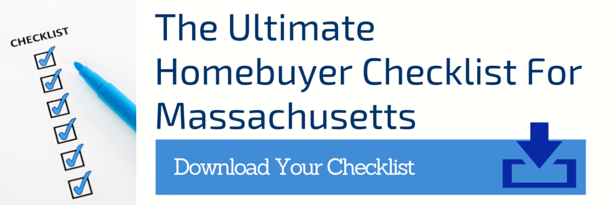In addition to the down payment, homebuyers need to pay closing costs. Closing costs are the collection of fees, expenses, and charges associated with purchasing a home with a mortgage loan.
The amount of closing costs will vary depending on the price of the property, the type of home loan, the lender and whether the homebuyer is paying any "points" to lower the interest rate on the loan. One point equals 1 percent of the total loan amount, e.g., $3,000 on a $300,000 loan. First-time homebuyers typically do not pay points when buying a home. FHA loans have additional fees not typical in other loan programs.
 For most homebuyers in Massachusetts and New Hampshire closing costs will amount to between $4,000 and $8,000. There are some loans without closing costs, sometimes referred to as lender-paid closing costs loans or no closing costs loans, but these loans are going to have a higher interest rate, thus increasing the homebuyer's monthly mortgage payment.
For most homebuyers in Massachusetts and New Hampshire closing costs will amount to between $4,000 and $8,000. There are some loans without closing costs, sometimes referred to as lender-paid closing costs loans or no closing costs loans, but these loans are going to have a higher interest rate, thus increasing the homebuyer's monthly mortgage payment.
Types of Closing Costs in Massachusetts
Closing costs are often broken down into the following categories:
There are "prorations"/adjustments paid in advance of the closing by the seller, and the buyer will reimburse the seller for items that the seller paid in advance, such as pre-paid taxes, condo fees and fuel costs (e.g., oil/propane already delivered to the house). For example, if the seller paid the condominium fee on June 1st, and there is a closing on June 21th, the homebuyer will reimburse the seller for one-third (10 days) of the condo fee.
Borrowers likely will have to deposit reserves with their lender at closing. In most cases homebuyers will have to pay certain expenses of home ownership at the closing, particularly property taxes and homeowners insurance, and the lender will hold that money in escrow until payment of those costs become due. The lender wants to protect its investment, so collects these amounts from the homeowner and pays the taxes and homeowners insurance for the homeowner. After the closing the money for these costs is collected every month from the borrower through the mortgage payment. In Massachusetts real estate taxes are paid quarterly and due the first day of the middle month of the quarter, e.g., February 1st for the first quarter. Homeowners insurance is due annually.
There are lender fees associated with obtaining a mortgage, such as origination fees, appraisal, credit report, tax service fees, flood certification fees, mortgage plot plan and sometimes other fees. Lenders have to disclose these fees, as well as other costs, up front to consumers. There should not be any big surprises at closing with regards to the amount of closing costs.
There are several pre-paid items that borrowers will be responsible for at the time of closing. Lenders will typically require borrowers to pre-pay one years’ homeowners insurance, the next tax bill (if it is due before the lender can collect enough reserves in escrow), and the interest on the first month of the mortgage. After the homebuyer pays the first year of homeowners insurance, sometimes referred to hazard insurance, at or before the closing, the lender collects a couple of months of the insurance premium to put in escrow and then collects 1/12 of the insurance premium each month. The lender then pays the homeowners insurance when it comes due again 12 months after the closing. Mortgages are paid in arrears, meaning a mortgage payment on November 1st is for October; however, if the borrower, for example, closes on September 28th, the lender collects interest for September 28th, 29th and 30th.
There are a number of title charges and fees related to the closing attorney's work payable at closing. There is the attorney's fee, lender’s title insurance (required), owner’s title insurance (optional, but recommended), title search fee and several miscellaneous fees, such as final title run down (which is always last-minute), carrier fees (if applicable), wire fees (if applicable) and a mailing fee, because the lender will often require the closing package to be sent by the closing attorney back to the lender by overnight mail.
Homebuyers must pay state recording fees at closing for the recording of the deed, mortgage, municipal lien certificate (in Massachusetts), homestead deed (in Massachusetts), and real estate transfer tax (in New Hampshire). Only the seller in Massachusetts pays what is referred to as tax stamps, which is a transfer fee charged by the Commonwealth of Massachusetts equaling 0.456 percent (or $4.56 per $1,000) of the purchase price. In New Hampshire, the Buyer and Seller split the transfer tax; each party pays 0.75 percent of the purchase price.
.png?width=400&height=85&name=2023%20BBO%20Logo%20800x170%20(400%20x%2085%20px).png)





